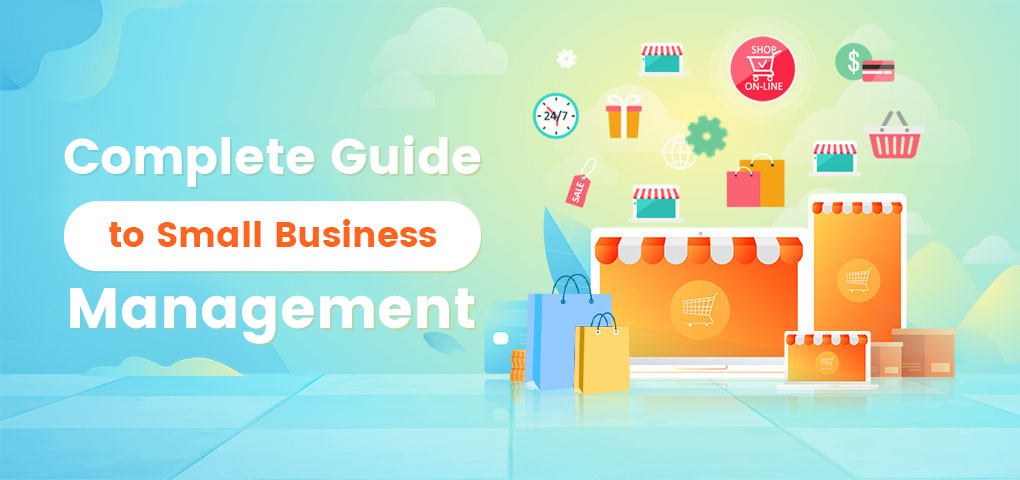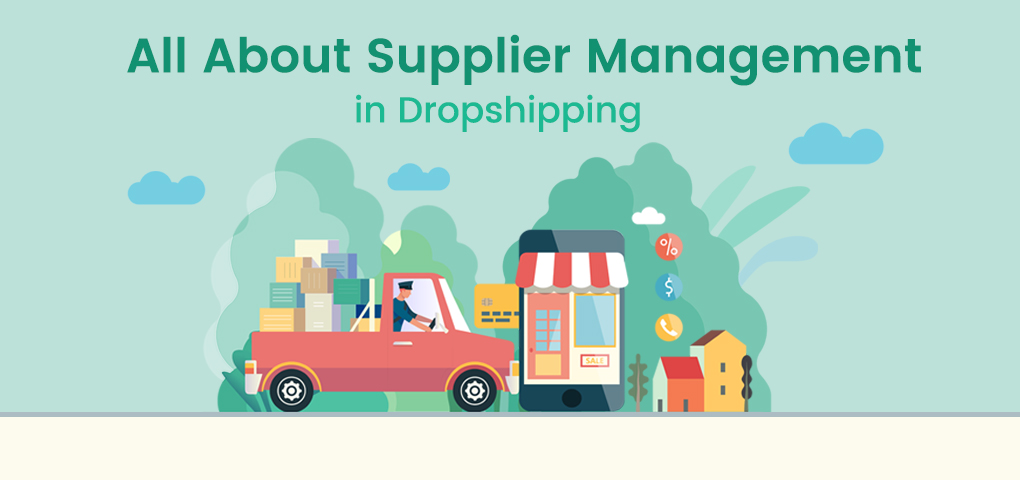Managing a small business can be exciting; it gives you a significant chance to contribute to the area's economy while building a brand for yourself. However, you need to understand that the venture comes with a myriad of experiences; you would have to put in the work every step of the way.
Understanding the true essence of small businesses could help you as an entrepreneur, allowing you to position yourself better in the industry. The article highlights some points for more productive business management on a small scale.
Contents
- Part 1: 6 Important Aspects of Small Business Management
- Part 2: Best Small Business Management Software That You Should Use
- Part 3: Useful Tips for Small Business Management
- Part 4: Conclusion
6 Kernels of Small Business Management
There is the danger of thinking that small business management is a monolithic concept; there are aggregate sectors and aspects that make up a functional management system for small businesses. If you are looking to begin a business or a career in business management, some of the small business management branches to note include:
1. Human Resource Management (HRM)
HRM is a segment of an overall small business management system that focuses on the workforce. It includes onboarding, compensation, and benefits management processes related to the individual workers in the business. Also, HRM would handle the safety protocols and overall welfare of staff.
While it might seem that human resource management should fall into the hands of a dedicated department, the branch in a small business requires a more "hands-on" approach. It means that all the organization departments have to consider and implement HRM measures in their workflow to improve general productivity and performance.
2. Project Management
At some point in any organization, businesses would launch and embark on projects of varying sizes. For a small business, the need for a project's comprehensive planning is imperative. Project management for small business systems ensures that a project's requirements are available for its long-term and short-term goals.
Project managers within the organization would often prioritize equipment acquisition for the project as it is a more practical approach to short and long-term objectives achievement. Additionally, you might also have to go through a task breakdown for projects, managing disparate and similar tasks for multiple projects in motion.
The inventory branch of a small business management system would count towards its financial management. However, individually treating inventory ensures a more transparent management procedure. It should help work out the financial health of the business over a short period.
Furthermore, you need to understand that inventory management for small business brands goes in both material intake and finished product directions. It means that you'd have to account for storage, sales, and purchases of primary components of the final products, under an inventory system. You have the needed visibility into the stock levels concerning production costs and final pricing in the long run.
4. Customer Relationship Management
Customer Relationship Management, or CRM, is simply the process of sustaining interactions and connections with potential customers and actual customers. While it might not seem like it, CRM is one of the small business management segments that directly connects with the brand's profitability.
A sound CRM system helps you understand your business's average customer lifecycle through the various mediums it employs. You get to quantify how you engage potential clients through digital marketing and customer service and ascertain how much impact it has on your products or services' market performance.
5. Supply Chain Management
You need to have a comprehensive appraisal of the lifecycle of raw materials in your small business. It involves monitoring material purchases at the internal production point, all the way back to the various suppliers and source points. The common goal is to create and sustain an adequate supply line, consolidating existing systems to ensure that raw materials come in at the right time.
In the bigger picture, the business's supply chain would often determine how well you fare against the competition; a good supply chain management quickly hands you the advantage in the market.
6. Social Media Management
Social media's business potentials keep increasing by the year, and having concrete social media management for small business entities can deliver a considerable boost. It involves engaging an audience with content and interactions to provide personalized products or services better.
Since it also serves as a performance quantifier, you can determine how social media has impacted customer intakes and ROI (Return Over Investment) throughout a set time.
The Best Small Business Management Software
Small business management software can significantly improve the management staff's collective output, as it simplifies processes while outlining others in a streamlined manner. Below are some of the best small business management apps you can consider:
For small businesses – and any business, for that matter – the need for a website is evident. In most cases, a website is one of the essential items to exist when putting the organization together at the start.
You can explore website building services to design a custom website for your brand without much cost. Some website builders offer free services, and you can pay for a subscription to have them host your finished website.
2. Network Protection
If you would be fielding content and brand-related data on the internet, you need to protect your network against virus attacks and hacking. Protecting digital property is critical to most small businesses' survival, and a data attack could bring the company down.
It will help if you invest in reliable network protection software, including comprehensive malware blocking, firewall, and security scanning. Some network brands might also include data encryption & shredding, and administrator controls for a premium for advanced security features.
3. Video Conferencing Software
Small businesses might have to employ video conferencing to communicate with a remote workforce, potential candidates, and even clients. As you might have the infrastructure to hold large physical conferences and meetings, video conferencing software fills in the gap quite effectively.
You could procure free solutions that support multiple video feeds across ten or more simultaneous participants. You could even explore advanced video conferencing software with useful features for better organization performance for a fee.
4. ATS System
ATS, or Applicant Tracking Software, allows you to handle most of the small business's onboarding and recruitment process. Its resourcefulness is more apparent in a small organization without a large recruitment department; it is also handy if you don't have the revenue to pay a top-level recruitment agency.
The software would allow you to post job offerings and access a recruiter for the job; you get to tracks the listings all through to the right candidate selection. Some ATS options would also give email templates to make it more convenient to reach out to potential candidates.
5. Project Management Software
Project management software for small business entities would allow business owners to handle tasks and projects practically. You get to delegate project tasks, share relevant files between project members and collaborate and supervise progress by the milestone you've set.
Generally, software providers offer real-time monitoring features and cloud storage for company files as well.
6. HRM Software
Tracking employee progress and time-based performance is convenient for human resource management software. A typical HRM software would deliver extensive features such as shift scheduling and bundled task management to help you handle individual contributions to short-term and long-term growth.
Paid versions of the software could also allow you to link with payroll, for a more streamlined overall employee management
7. Accounting Software
Operating costs do not end with employees' wages and salaries. They would include utility charges, tax, and other overhead peculiar to the industry. Therefore, it is imperative to pay for an accounting software service. Most recent accounting solutions offer a wide variety of features, most of which directly impact cost and expenditures.
Other than the fundamental accounts function, you could also find reporting features, with the ability to create a new invoice for customers. Other providers give you the chance to scan receipts and invoices into a database. Overall, a reliable accounting system should consolidate the primary bookkeeping practices within a typical small business.
Email marketing is a veritable tool for small businesses, mostly when you employ it in tandem with the various other strategies; email still proves to be an effective way to reach customers over the years.
An excellent email marketing software doesn't have to cost you much; they typically come with genuinely useful features that improve the marketability of the business. Some software solutions provide email templates to easily customize your specific needs per time and send branded forms in bulk.
Most email marketing software vendors sell the product in tiers, depending on the bulk email volume the business wants to have sent in a month; however, you can check around for options conveniently suited to your use case.
9. CRM Software
A reliable CRM software would quickly take the chore out of essential customer service management within a small business setting. This software would generally field numerous features to help you track and report on customer data.
You could lean into project management from some CRM management, as they have functions that help the team create, track, and report project goals in relationship with the end-user.
However, you would be hard-pressed to find some of the best customer relationship management software for small business users, free on the market. Available options offer substantial value for money.
10. Social Media Aggregation Software
Short of employing a full-time social media manager, a small business needs a system to control, sustain and manage the online presence, while keeping the attendant costs at minimum. A social media aggregation software application could fill in space, effectively timing social media posts and interactions.
Additionally, you could manage multiple media within the social space, interact with followers, track follower population, and post performances. A good number of software vendors allow you to have numerous brand profiles; however, they often cost a premium.
Proved Tips for Small Business Management
As with most things in life, there is no hard-and-fast rule to manage small businesses successfully, but there are several actions that could either make or mar your chances of a smooth operation. Below are some of the useful tips for you to consider when venturing into small business management;
1. It pays to be official
All businesses have to become duly registered at some point, and since operations are not substantially significant, small companies tend to fall into the temptation of remaining free and unregistered. It is mostly true for some sole proprietorship businesses and freelance-type outfits.
However, becoming official by registering as an LLC or other business entity forms has vital advantages in the long run. Losses and liabilities would have a clear-cut limit, giving you a bit of security if you run into legal trouble.
2. Prioritize education
Managing a small business does not have to actively involve trials and errors; objectively, small companies do not have the structural integrity to withstand trial-and-error management for long. Therefore, you'd be taking a logical step if you invest in the right education for your business.
You get to acquire knowledge from individuals or entities who went through the same process you're currently in, and you have better insights (or at least, learn how to garner insights) into effective managerial procedures.
3. Go big on marketing
Small businesses don't have the luxury of brand power or autonomous customer retention, which means managing a small business requires the extra step. Where other brands sit and wait, expecting customers to come in, you have to go to the customers to create awareness.
Bear in mind; that marketing is not a mindless, haphazard endeavor; instead, it requires the right amount of research and investment. Try out the numerous marketing strategies peculiar to your industry to find which one delivers the most effective results.
Free Takeaway: Start an Easy-to-Manage Business
There are so many aspects you need to take care of if you are about to start a business and determined to go big. Dropshipping is particularly popular among all e-commerce businesses, as it doesn't require inventory or huge funds. With a trustworthy dropshipping supplier like SaleYee Dropshipping Platform, everything will be easy for you - the order fulfillment is handled by the dropshipping supplier; whereas, you just need to pay after a customer orders from you, enjoying the optimal flexibility of cash flow.
Conclusion
Small business management is similar to entrepreneurship, and like entrepreneurship, it has numerous variables at play for a successful brand. It will help if you realize that small businesses would exist on a back-pedal compared to their industry's big-brand rivals. Kindly take note of the above-listed tips and tools, and try to implement them to radically improve small businesses' chances of sustained performance on the market.








